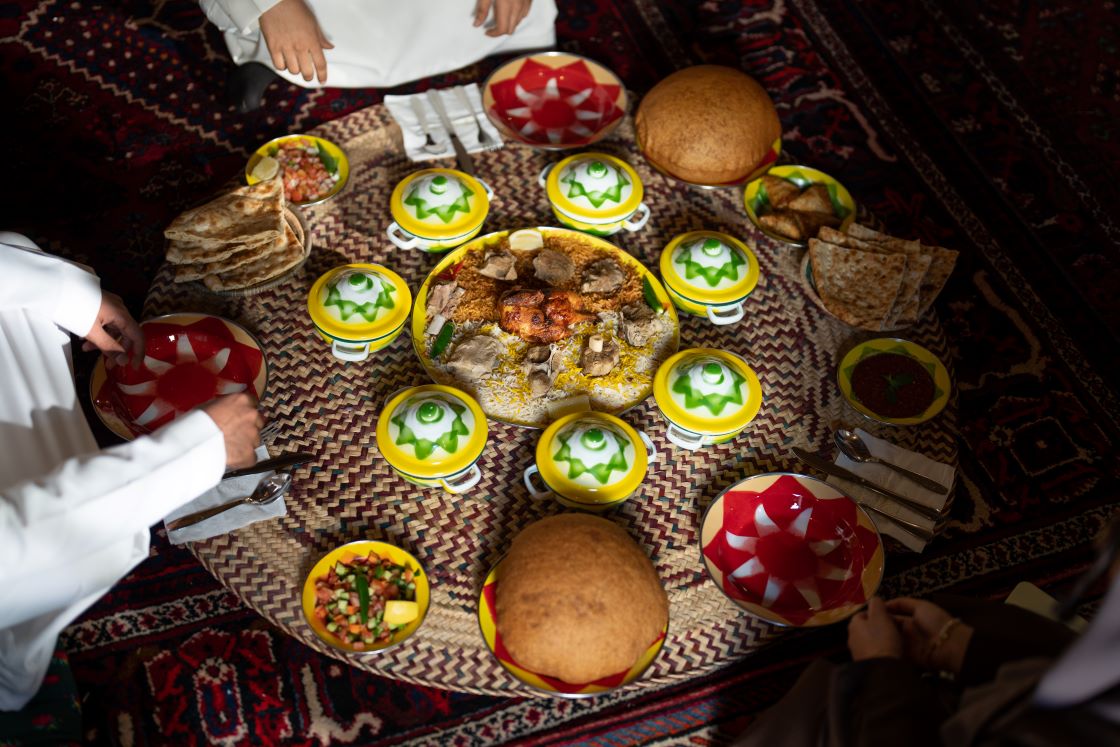The global Muslim travel market is expected to reach USD220 billion by 2020, and Thailand is laying claim to a significant slice of that pie.
So far, visitor numbers justify the marketing efforts, with an estimated 3.6 million Muslim visitors arriving in the country in 2017.
“Halal food can be found in every corner of Thailand, and I believe its availability is a major reason why the kingdom is such a popular destination for Muslim travellers,” said Sanya Saengboon, General Manager of Al Meroz Hotel Bangkok.

Some of Thailand’s favourite dishes are actually of Muslim origin.
The rice in khao mok kai (chicken biryani) gets its yellow hues from the herbs and spices it’s cooked in, including cinnamon, cardamom, clove, and saffron or turmeric. The fragrant rice is topped off with chicken (sometimes beef), sprinkled with crispy fried shallots, and commonly served with a green herb sauce or sweet chili sauce.

One of the country’s best known curry dishes, massaman, is believed to be named after an ancient form of the word “musulman”, which actually means “Muslim”. Massaman usually contains coconut milk, roasted peanuts, potatoes, bay leaves, cardamom pods, cinnamon, palm sugar, tamarind sauce, and fish sauce.
What is Halal food?
So, what exactly determines whether a food is Halal and how does this rich cuisine reflect Islamic principles?
First of all, the chef must be a Muslim, and the kitchen appliances used to prepare Halal food should be clean and never contaminated by non-Halal (haram) items; such as, animal blood and alcohol.

Pork is well-known for being haram, while other excluded meats include the flesh of carnivorous animals, poisonous animals such as, scorpions and creatures forbidden to be killed under Shariah Law – ants, for example. The slaughter process must also abide by rigid rules based on Muslim principles that ensure the animals are not tormented. What’s more, they should always be dead before being cooked.


“One of the main misunderstandings the general public has is that Halal food is exclusively for Muslims, when in fact it takes into account cleanliness and nutritional value,” said Al Meroz Hotel’s Saengboon, who added that the most popular dishes at the Hotel include lobster biryani and roasted duck fried rice.
Muslim travellers to Thailand can enjoy more than just dining. "At the Blue Elephant Cooking School, we can accommodate guests’ requests for a dedicated Halal friendly corner,” said Blue Elephant founder and chef Nooror Somany Steppe. Halal-certified chicken and meat dishes are also available on the menu.
To bring a taste of Thailand back home, Blue Spice is a Halal-certified range of curry paste and sauces developed by Blue Elephant and exported to 37 countries around the world.
In the latest Global Muslim Travel Index 2018, Thailand ranked second to Singapore as the top non-OIC (Organisation of the Islamic Conference) destination preferred by Muslim travellers.
Muslims are well integrated into the predominantly Buddhist Thai society, making up an estimated 9 to 10 percent of the population. A large number of Malay Muslims can be found Phang-Nga, Songkhla, Ranong, Phuket, and other southern provinces which historically neighboured the Pattani Kingdom. In northern Thailand, the majority of Chinese Muslims can trace their history back to the 19th century migration of Hui Muslim ethnic group from China.

To assist with Muslim travel, a few years ago the Tourism Authority of Thailand (TAT) launched the Thailand Muslim Friendly app on the App store to help visitors search for mosques, hotels, and Muslim health providers in Thailand. The app also lists a selection of 150 restaurants certified by the Central Islamic Committee of Thailand.
In addition to the prevalence of Halal-friendly restaurants, there are also nearly 3,900 mosques in the country. Although no travellers are identical, Muslim or otherwise, the increasingly Muslim friendly facilities on offer (including prayer rooms in the airport and prayer mats in some hotel rooms), mean Thailand looks to remain a firm favourite for Muslim travellers.
This article is brought to you by Tourism Authority of Thailand.
To know more about Tourism Authority of Thailand, please visit https://www.tourismthailand.org/










